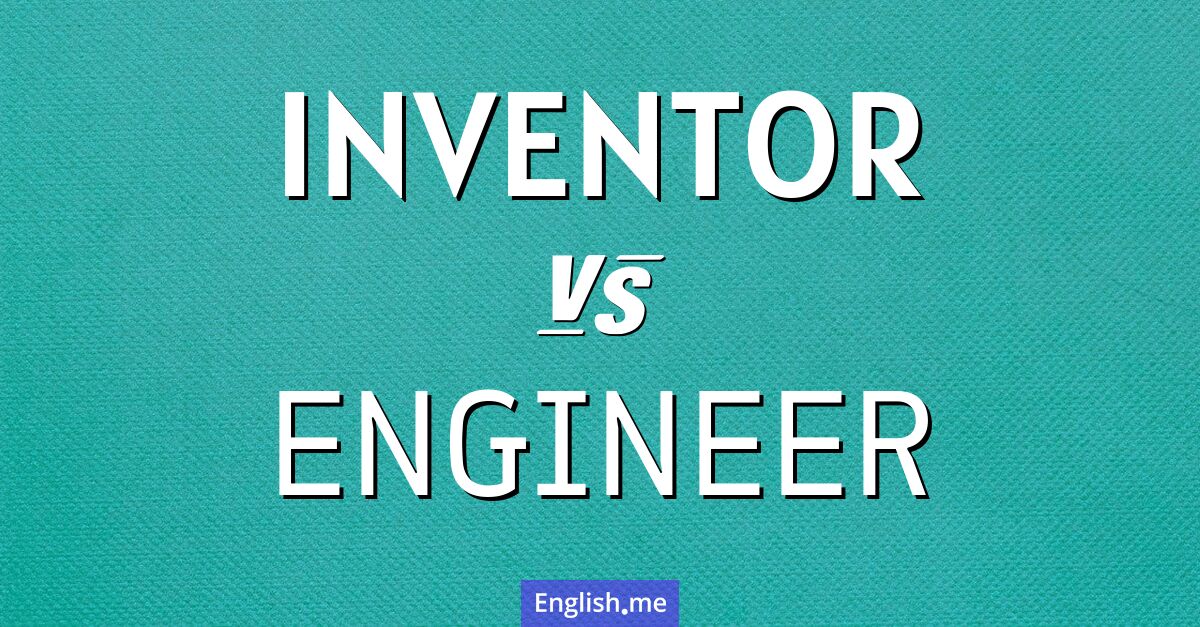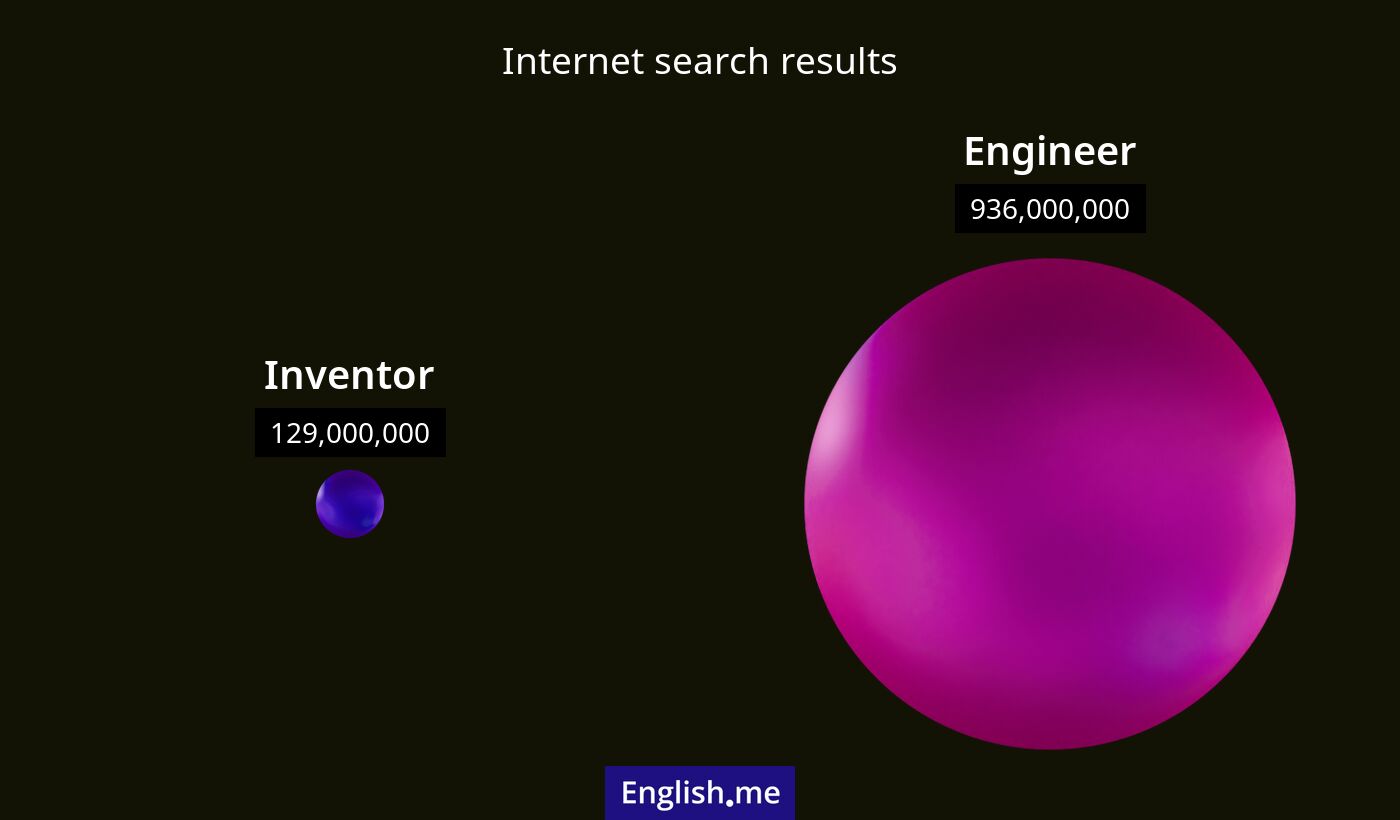"Inventor" vs. "engineer": crafting ideas and building reality

 What is similar?
What is similar?
Both "inventor" and "engineer" refer to professions or roles that involve creating, designing, and developing tools, systems, or processes. Both require creativity and problem-solving skills, often working in technical or scientific fields. They can both contribute to innovation and practical applications in society.
 What is different?
What is different?
"Inventor" typically refers to someone who creates something novel or comes up with a new idea or product. An inventor focuses primarily on the conceptualization and initial creation. "Engineer", however, is a professional who applies scientific and mathematical principles to design, build, and analyze structures, devices, or processes. Engineers often work on improving or applying ideas and products, with a focus on practicality and usability.
 Which one is more common?
Which one is more common?

 Examples of usage
Examples of usage
Inventor- Thomas Edison was a prolific inventor known for the phonograph and the electric light bulb.
- The inventor's garage was filled with prototypes and sketches of her ideas.
- As a civil engineer, he was responsible for designing the new bridge.
- The software engineer worked late into the night to fix a bug in the code.

 English
English español
español française
française italiano
italiano deutsche
deutsche 日本語
日本語 polski
polski česky
česky svenska
svenska Türkçe
Türkçe Nederlands
Nederlands